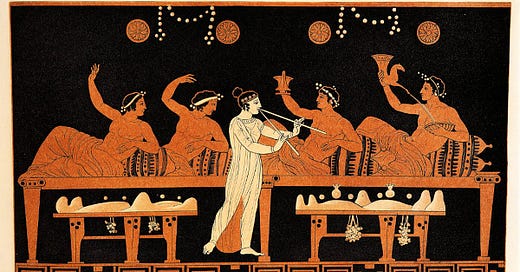At various points in the course of this seminar, already, we have encountered the suggestion that there is something fundamentally erotic about human being. And that the most choice-worthy forms of life would do justice to this fact, taking it as a central point of orientation. What, then, is eros? How is it that this term is implicated in phenomena as varied as making babies, making masterpieces, pursuing the truth, and perhaps in religious experience as well?
Today I have the privilege of presenting an extraordinary essay by Talbot Brewer, “An Economy of Life,” which he presented to the in-person seminar last night. It is a reflection on eros as it comes into view in two dialogues of Plato, Symposium and Phaedrus. As you will see, this is not a scholarly production, but something much more direct and alive: one feels the presence of a mortal working out the most important and urgent matters for himself, right in front of us. In that sense, the essay itself resembles a Platonic dialogue.
I first listened to Brewer present “An Economy of Life” at a gathering in Charlottesville. One of those present, Jackson Lears, is the editor of Raritan. He published the essay there first. Brewer and Lears have both graciously allowed me to republish it here. It is paywalled in both locations.
Below Brewer’s essay, I will post some of my own thoughts, drawing out a through-thread that joins this essay to our discussion of Nietzsche. I will also post an audio version of my comments, at the very end.
Keep reading with a 7-day free trial
Subscribe to Archedelia to keep reading this post and get 7 days of free access to the full post archives.




